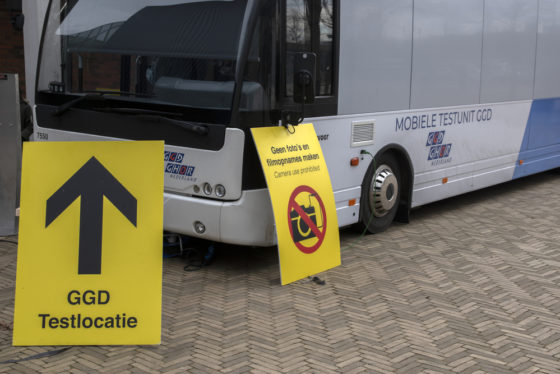Coronavirus in the Netherlands: What you need to know (January 15)


The Dutch government has relaxed some of the strict rules currently operating in the Netherlands from Saturday, January 15. Here’s what you need to know.
Education
All trade schools, colleges and universities can re-open for physical lessons, but masks are mandatory for students and lecturers at all times. Students and staff are recommended to self test twice a week. There is a limit of 75 students in lecture theatres but no limit on numbers applies to exams.
There are no changes to the rules for secondary and primary schools and secondary school pupils should still wear a mask when moving between classrooms. Twice a week testing is also recommended.
Sport
All indoor and outdoor sports can open, without time limits, but matches are restricted to inter-club competitions. The over-18s taking part in indoor sports and fitness classes will have to have a valid coronavirus pass. Professional sports can continue, but without fans, including top flight football.
Cultural sector
Theatres, cinemas and museums remain shut for at least two more weeks. Rehearsals are allowed but no performances with audiences.
Shops
Non-essential shops can open again but must close their doors at 5pm. Masks are compulsory and numbers limited so there is no more than one customer per square metre. Essential shops can remain open until 8pm.
Contact professions
Hairdressers, nail technicians, sex workers and others in contact-based professions may see customers before 17.00.
Masks
The government advises people wear a medical standard mask in any place where social distancing is not possible but has now expanded that to include outdoor spaces such as busy shopping streets and at work. Fabric and home-made masks should be avoided. Masks should be labeled as medical type II with a CE certificate or higher if the person is in vulnerable health.
If type 2 masks are not available – and most high street stores said last week they did not have any – then ordinary disposable tissue masks will do. See Nu.nl for an article showing the different types of masks.
Masks remain compulsory on public transport, in taxis and at airports and may also be required in hospitals and other healthcare institutions.
Quarantine
People who have had a booster at least a week ago or had coronavirus in the past eight weeks will not have to quarantine if they come into close contact with people confirmed to have coronavirus, as long as they don’t have symptoms.
People who have not been fully vaccinated should go into quarantine for 10 days, but this can be lifted after five with a negative PCR test.
Socialising
Receive no more than four visitors over the age of 13 at home per day and visit no more than one household. Outside groups can now number four people over the age of 12, rather than two.
People aged 70 and over are advised to limit their contact with others, including children, as much as possible and stay 1.5 metres apart.
Work
Working from home remains the norm, and people should wear masks in the office if social distancing is not possible.
Travel
The government did not make any new recommendations on foreign travel or the quarantine requirements for new arrivals.
This means people travelling to the Netherlands from outside the Schengen open border area will have to show a negative coronavirus test on arrival, even if they have been fully vaccinated or recently recovered from coronavirus. Depending on where they are from, they will also have to quarantine for 10 days, but can take an early release test on day five. Read the travel rules here.
Coronavirus passes
The use of coronavirus passes will continue and legislation is being drawn up which would allow the introduction of a 2G system. This restricts entry to some locations to people who have either been fully vaccinated or who recently had coronavirus.
Scientists at TU Delft are also researching the likely impact of 2G on the spread of coronavirus infections in the Netherlands.
However, there is no majority support for 2G in parliament and neither prime minister Mark Rutte or health minister Ernst Kuipers raised the issue at Friday’s press conference.
The future
The government will look at relaxing some of the remaining rules – such as the closure of cafes and cultural institutions – on January 25.
The new government is also working on a plan to cope with coronavirus long-term. Kuipers said at Friday’s press conference that we will ‘have to learn to live with it.’
Thank you for donating to DutchNews.nl.
We could not provide the Dutch News service, and keep it free of charge, without the generous support of our readers. Your donations allow us to report on issues you tell us matter, and provide you with a summary of the most important Dutch news each day.
Make a donation